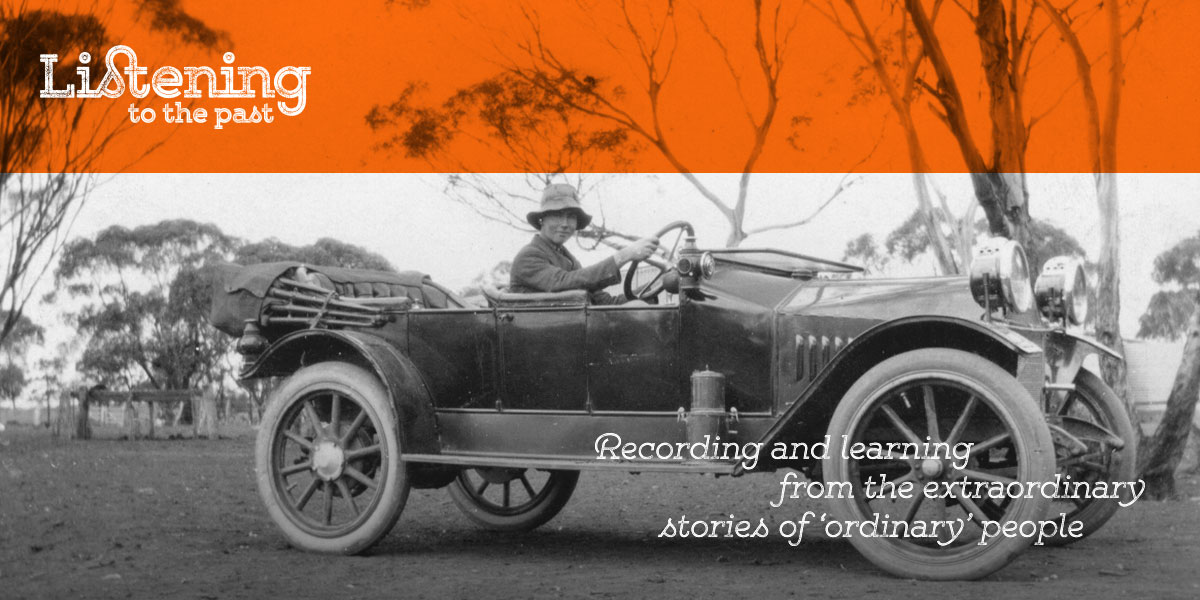There are many excellent reasons to record and use oral history interviews.
Here are the first five of the fifteen reasons why I have found oral history to be useful and important. They are not in any particular order.
Oral history is an excellent way to:
1. Gather eye-witness accounts and correct the official record
Reports in newspaper and official documents may tell only one side of the story or be inaccurate. For example, newspaper reports of the Unemployment Relief Scheme settlement in Meadows in the 1930s painted a very different picture to the stories of the people who had actually lived there. The houses they lived in, for example, were not the ‘roomy tin bungalows’ described in the newspaper. Those living in the Unemployment Relief Scheme settlement did not write down their experiences, and oral history interviews are our only way of knowing first-hand what it was like for them. You can read about their experiences here, here and here.
2. Talk to people who are often missed in traditional, top-down histories
Oral history enables us to interview minority groups for example. Those people who lived in the Unemployment Relief Scheme settlement were not quoted in newspaper articles of the day, whereas a prominent Adelaide businessman who was chairman of the Land Settlement Council was quoted. Examples of information obtained from interviewing the families of the unemployed are here.

3. Obtain stories not otherwise written down or documented
In this example, Geoff Watson recalled an incident from his childhood in Meadows in the 1930s. It is an amusing story and also sheds light on the way children were viewed at the time, and how they felt about it.
Yes, we used to go to Lodge, the children did, and on this particular night the officials were coming up from Adelaide and they asked us all to take along a supper. But when suppertime come around we children were all shown the door and we didn’t appreciate that, and some of the lads got the idea of putting a bag over the chimney, because they had a fire going in the fireplace, so we got a long ladder, went up and put this bag over it and then we all disappeared. Unfortunately for Maurice Ellis, he happened to be walking down the street past the hall and they caught him and they blamed him for it.”
Quote courtesy of the State Library of South Australia, OH829/15

4. Gather sensory impressions
Some people are very good at describing the sounds and smells of a place. These sensory impressions are not always included in written descriptions, and even then, they lack the emotion of the oral description.
In this example, Joy Craill describes entering the old Meadows Hall to see flower shows in the 1930s and 1940s.
Oh, it was fantastic because the smell would just – – –. You know, these beautiful flowers, it was like going into a florist shop. There was just this waft of all this beautiful-perfumed flowers that hit you as you walked in the door, and it was full because there would be long tables all down through the middle and on the sides, and they’d be quite up high, so it was just like this panorama of flowers. It was beautiful.”
Quote courtesy of the State Library of South Australia, OH829/12
5. Add a more human element to your research by recording emotions
Oral history is a powerful way to capture emotions.
In this example, Lillian Gage provides a very sad description of her mother after the 1939 bushfires had swept through the town of Meadows in the Adelaide Hills. The audio of the interview conveys so much more than a written description.
And one thing I remember of her. It was early 1939, and this is a picture I never, ever get out of my mind: the bushfire had gone through and everything was gone, and she was just sitting there on a black stump, you know, and she just looked so old and so tired and so dirty. She said, ‘Oh, if only I could have a cup of tea’. But of course there was no water in the tank, no anything. But she still carried on, just the same.”
Quote courtesy of the State Library of South Australia, OH829/16

In the next post, I will give the next five reasons I recommend you use oral history.
